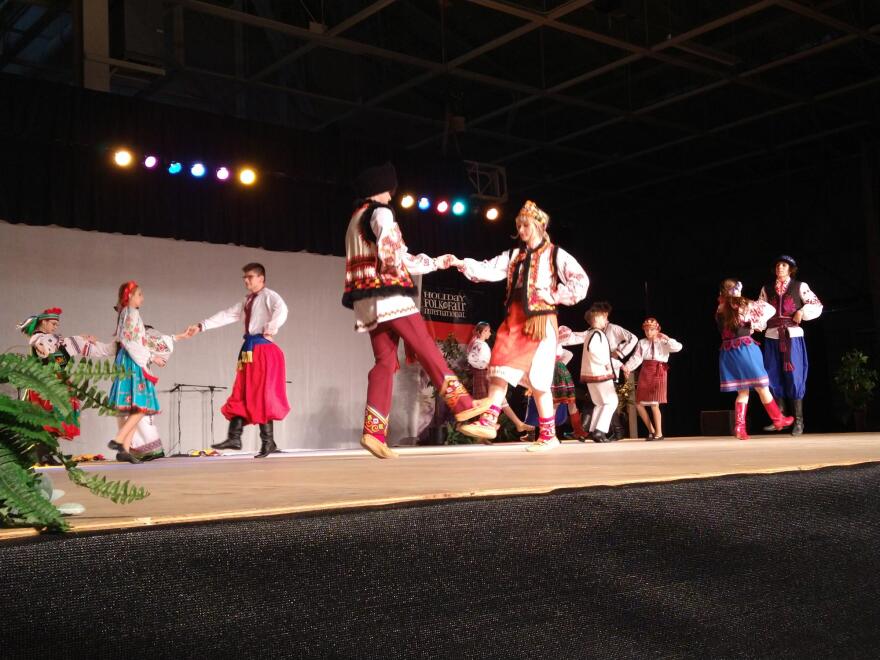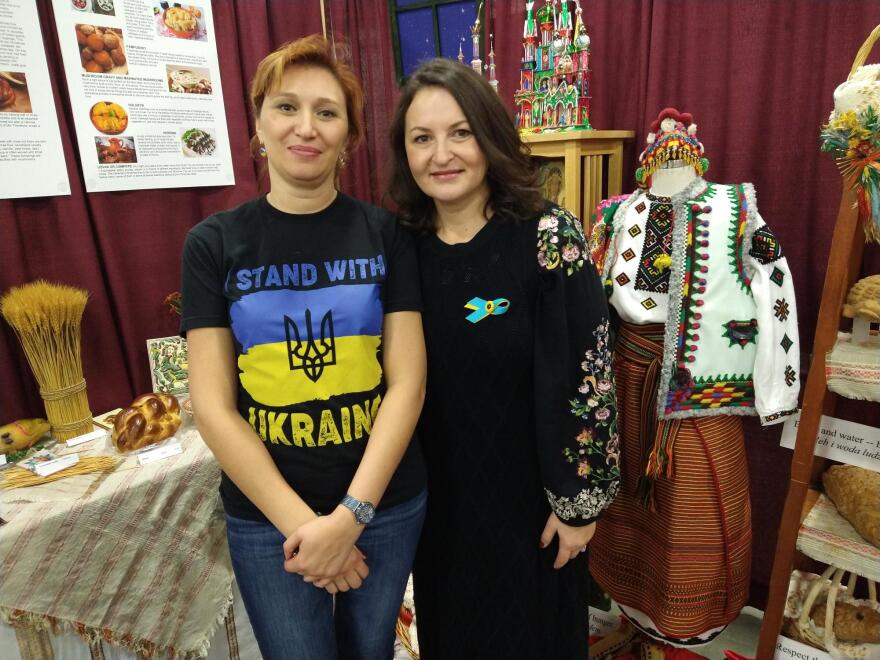Continued war—or possible peace talks—in Ukraine? The question is on the minds of some of the estimated 10,000 people of Ukrainian descent now living in Wisconsin.
The same question is on the minds of peace group coalitions active in the Milwaukee area.
Wisconsin Ukrainians is a non-profit group that's been sending humanitarian and medical supplies to the people of Ukraine for months now since the invasion by Russia. In addition, the group has sent to Ukrainian soldiers from the U.S. and trusted suppliers in Ukraine military gear such as boots, helmets and body armor.
Halyna Salapata is on the board of Wisconsin Ukrainians and is a leader of Ukrainian Milwaukee. She says with winter arriving, her group recently had an effort called "dress-a-soldier."
"So, we were able to buy 200 fleece jackets, 200 thermal underwear, and then we got 100 pairs of boots, which is a lot. I know winter is coming—that even if they've got clothes in Ukraine, it's never enough because it's rainy, and winter means snow. So, they have to have a change of clothes. [We're] trying our best," Salapata says.
Just this week, Ukrainian authorities started evacuating civilians from recently-liberated areas for the winter, fearing Russian troops have damaged too much infrastructure to supply needed heat and lighting.

The cold weather concerns come as some officials in the U.S., and elsewhere have stepped up promotion of the idea that it's time for peace talks with the Russians.
Salapata says—negotiations?—only under one condition.
"Russia must leave all captured territories. I agree with the Commander-in-Chief of Ukraine's armed forces, Valeri Zaluzhnyi, and I agree with President Zelensky of Ukraine that until Russia leaves all captured territories there is no peace talk," Salapata says.
Another Ukraine native, Dina Borysenko, says family members who have fled the war stay with her in the Milwaukee area. She says other relatives still in Ukraine are often without heat and electricity.
Borysenko says she doesn't trust any Russian talk of a ceasefire.
"Because we are fluent in Russian, we can see the news and see their propaganda. There is no slowing down on their part. If they agree to a temporary ceasefire, it's only to regroup and build more ammunition and come back. There is no sign they want to stop," Borysenko says.

But local and national peace groups are pushing for peace talks. Jim Carpenter is with Milwaukee's End the Wars Coalition and was just named Peacemaker of the Year by Peace Action Wisconsin. He says Russia's invasion of Ukraine is a "horrible crime."
"We have an upward spiral of violence occurring, right? We sent weapons, Ukraine takes territory. Russia responds by sending missiles into Ukraine, destroying vital infrastructure, trying to freeze people. It has no good ending," Carpenter says.
Carpenter says it's reasonable that Russia gives back territory that it's taken this year. But he says Zelensky may also be seeking land Russia took nearly a decade ago, an issue Carpenter says should be resolved at the bargaining table.
Carpenter says many Americans fear Russian President Vladimir Putin could even set off a nuclear bomb in Ukraine if he's frustrated.
"They do not want to see the end of humanity, with nuclear war in order to fight over some territory in Ukraine. That just does not make any sense," Carpenter says.
Ukraine native Dina Borysenko acknowledges the risk of a wider conflict.
"Absolutely. But I think, it's very difficult to make it worse for Ukrainians. They are being bombed daily. My family is in eastern Ukraine—they daily bomb," she says.

At last weekend's Holiday Folk Fair in Milwaukee, a youth group performed a traditional Ukrainian dance. It was a brief, colorful and shining moment, as people otherwise worry about war and debate how to end it.




